Picture this: you’re halfway through a creamy flat white at your favourite Brisbane cafe when you suddenly hear a crack. No, it’s not the coffee machine — it’s your tooth! Biting into something unexpectedly hard (maybe a rogue nut or popcorn kernel) can chip a tooth, and it’s a drama no one wants.
But hey, don’t panic. I’ve been there (twice!), and quick action can save your smile. Whether it’s your front tooth in the mirror or a hidden molar at the back, the first rule is: stay calm and don’t ignore it.
Queensland Health advises that if a tooth is chipped, fractured, or cracked, you should seek an emergency dentist in Brisbane as soon as possible. In other words, brush it off (not literally!) and get professional help fast – early repair greatly improves the tooth’s chances of survival.
Recognising a Chipped Tooth
Chipping a tooth isn’t always as obvious as you’d think. You might hear a snap and immediately taste something sharp – that’s a clue. Often, the only sign is a missing fragment or a jagged edge on the tooth.
For example, a chipped front tooth could leave a visible chunk gone, while a molar chip might only reveal itself when you feel a sharp corner with your tongue or notice tooth sensitivity. If the chip is large enough to expose the inner pulp (“pink” area), you’ll likely feel sudden pain or extreme sensitivity to hot and cold.
Common culprits include biting down on hard foods (think nuts, ice cubes or hard candy), sports injuries, or even just old fillings wearing down your tooth. Using teeth as tools (like opening bottle caps or tearing packaging) and bruxism (night-time grinding) are other sneaky causes.
If you feel or see anything unusual – a sharp edge, sudden pain when biting, or a piece of tooth in your mouth – treat it as a chip and move on to first aid.
First-Aid Steps After a Tooth Chip
Even before you get to a dentist, you can do a lot to minimize damage and pain. Here’s your quick first-aid checklist:
- Rinse gently with warm salt water. This cleans the area and soothes tissues. Queensland Health and dental sources all agree a warm saltwater rinse helps keep the tooth clean.
- Stop any bleeding. If you’re bleeding, pinch a clean cloth or sterile gauze over the area with gentle pressure until it stops.
- Apply a cold compress. Hold an ice pack or a bag of frozen peas wrapped in a tea towel against your cheek to reduce swelling and numbs pain.
- Protect sharp edges. Cover jagged enamel with orthodontic wax or even a piece of sugar-free gum to avoid cutting your tongue or cheek.
- Manage pain. Take over-the-counter painkillers like paracetamol or ibuprofen to stay comfortable. (Tip: don’t put aspirin directly on your tooth or gum – it can burn the tissue.)
- Save any fragments. If a piece of tooth broke off and you found it, put it in a clean container of milk or your saliva. In some cases, your dentist can bond it back into place.
- Avoid chewing on that side. Stick to soft foods and try not to bite or chew with the chipped tooth, so you don’t worsen the damage.
- Call your dentist right away. Even if the chip seems small, schedule an appointment ASAP. Remember, “getting it checked early can improve the survival of a damaged tooth”. If the injury is severe – for example, you’ve injured your jaw or there’s heavy bleeding – head to an emergency department or ring 000. Otherwise, an emergency dentist or your regular dentist should see you as soon as possible.
Professional Treatment for a Chipped Tooth
Once you’re in the dentist’s chair, the repair will depend on how big the chip is. Here are the common chipped tooth repair options:
| Treatment | Best for | What it involves |
|---|---|---|
| Polishing/Smoothing | Tiny chips that don’t affect bite | Dentist buffs the rough enamel edge to smooth it out. No filling needed if it’s minor. |
| Dental Bonding | Small to moderate chips (especially front teeth) | Tooth-colored resin is molded onto the damaged area and hardened in place. Blends in cosmetically. |
| Fillings | Chips on back teeth | A composite filling material rebuilds the missing part of the tooth surface. |
| Porcelain Veneers | Front-teeth chips or cosmetic fixes | A thin porcelain shell is bonded over the front of the tooth to hide larger imperfections. |
| Dental Crowns | Large fractures or weakened teeth | A cap (crown) covers the entire tooth above the gumline, restoring strength and shape. |
| Root Canal + Crown | Chips that expose nerve or cause infection | The dentist removes infected pulp with a root canal, then fits a crown to protect the tooth. |
| Extraction | Tooth beyond repair | If a tooth is shattered or cracked through the root, it may need removal. Options like an implant or bridge can follow. |
For example, the Cleveland Clinic notes that small chips might only need simple polishing or bonding, while a big break often calls for a crown or even a root canal if nerves are involved. Brisbane dentists have all these tools at their disposal, so you’ll get a clear plan after an exam. (Fun fact: a quick polish and a touch of resin can sometimes make a small chip vanish in one visit!)
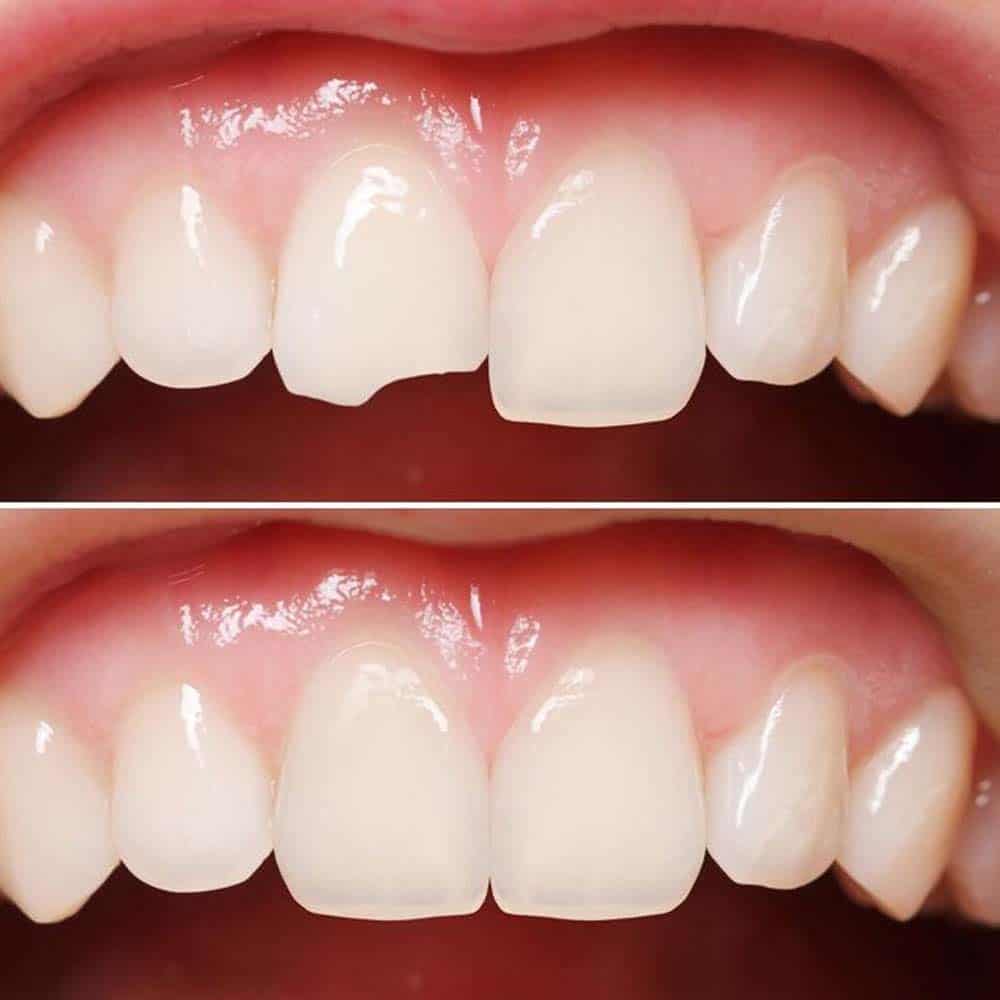
Emergency Dental Care in Brisbane
Luckily for us locals, Brisbane has plenty of options for urgent dental care. Many dental practices in the city (from the CBD to suburbs like Toowong, West End, New Farm, etc.) reserve slots for emergencies. Some even run 24/7 hotlines or weekend clinics. For example, some clinics advertise same-day or after-hours appointments specifically for cracked or chipped teeth.
If you’re unsure where to call, you can use Healthdirect (Australia’s 24/7 health advice service) to find a nearby emergency dentist, or ring their free helpline 1800 022 222 for guidance. Pro tip: Let the clinic know upfront that your tooth is chipped; they’ll likely squeeze you in sooner.
Don’t delay contacting a dentist. Queensland Health’s dental emergency fact sheet makes it clear: see a dentist as soon as possible to avoid further damage. In a pinch, you can even visit a hospital’s dental department – but hospitals usually handle the most severe trauma (knocked-out teeth, fractures involving the jaw, etc.). For a standard chipped tooth, your local dentist is usually the best bet.
Preventing Future Chips
Once this drama is behind you, take a minute to nip the next one in the bud. Small lifestyle changes go a long way:
- Wear a mouthguard during contact sports or high-risk activities (like rugby or skateboarding). It might feel uncool on land, but better protect those pearlies.
- Address teeth grinding. If you clench or grind (especially at night), ask your dentist about a night guard. Chronic bruxism can weaken enamel over time, making chips more likely.
- Be cautious with hard foods. Limit ice-chewing, hard nuts, popcorn hulls, or seed pods. Even strong candy or direct bitting of lobster shells can be hazardous. The ADA warns that chewing ice, using teeth to open things or biting down on very hard objects can easily chip or crack teeth.
- Maintain good oral hygiene. Healthy enamel is tougher enamel. Brush twice a day with fluoride toothpaste, floss daily, and keep up with your regular check-ups so minor wear is caught early.
- Use your teeth properly. Your teeth are for eating — not cutting tape, opening soda bottles, or other DIY uses. Treat them with respect and they’ll repay you with years of strong chewing power.
Bottom line: Prevention isn’t 100% guaranteed (sometimes life is just unpredictable), but these steps definitely lower your risk.
Conclusion
A chipped tooth can throw off anyone’s day, but it doesn’t have to ruin your smile. The secret is simple: stay calm, use immediate first aid, and get to a dentist fast. In Brisbane, there’s no shortage of skilled dentists who can repair chipped teeth – from simple bonding to cosmetic veneers, they’ve got you covered.
Remember, prompt chipped tooth repair not only eases pain and stops sensitivity, it also prevents infection and bigger problems down the track. So be your own hero (and call the dentist) – your future self will thank you when you’re smiling wide, chip long gone. If you have a question or experience to share about dealing with dental emergencies, drop it in the comments below!
Frequently Asked Questions
Is a chipped tooth considered a dental emergency?
Yes. While it might not be life-threatening, any chipped tooth should be treated urgently. Dental authorities in Queensland and beyond all advise seeing a dentist as soon as possible after a chip or crack. Even if there’s no pain, a chip can invite decay or infection, so get professional care promptly.
What should I do at home if I chip my tooth?
First, rinse your mouth gently with warm salt water and control any bleeding with gauze. Use a cold pack for pain/swelling and take safe painkillers (paracetamol, ibuprofen). Cover sharp edges with wax or sugar-free gum to protect your cheek. Save any broken piece in milk or saliva. Then call your dentist immediately – the quicker you act, the better the outcome.
How do dentists fix a chipped tooth?
That depends on how much enamel is gone. For very small chips, the dentist might simply smooth the tooth or seal it. Slightly larger chips often need bonding (tooth-colored resin) or a filling. Front teeth might be treated with a veneer or a cosmetic touch-up. Big breaks usually require a crown to cap the tooth. If the chip reaches the nerve or causes infection, a root canal will be done before crowning. Your dentist will pick the best option for you.
Will a chipped tooth heal by itself if I wait?
Unfortunately, no. Tooth enamel doesn’t grow back. Leaving a chipped tooth untreated can lead to pain, sensitivity, or infection as the hole and rough edges collect bacteria. Medical advice is clear: a chip won’t fix itself, and delaying care only makes it worse. So see a dentist sooner rather than later.
Can I use superglue or a temporary fix on my chipped tooth?
Don’t even go there. Superglue or “glue sticks” for teeth are unsafe and can worsen the situation. For temporary relief you can cover the sharp part with dental wax or sugarless gum, but see a dentist promptly for a proper repair.

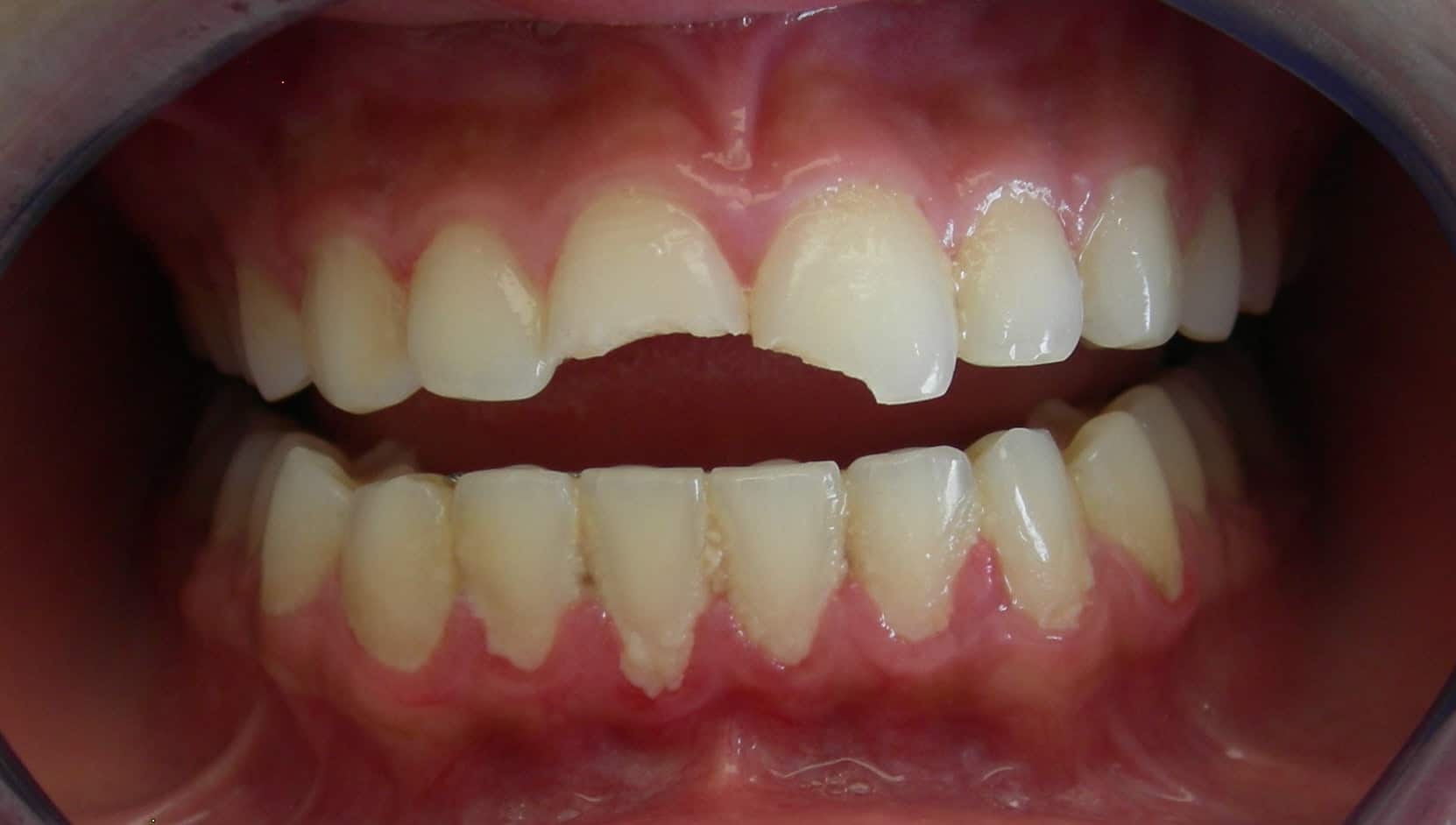
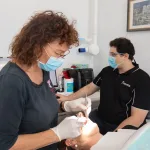
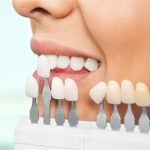
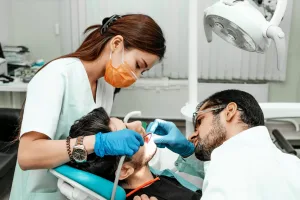
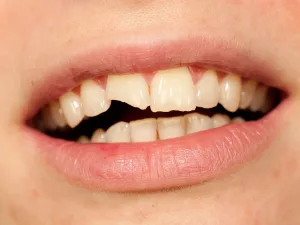
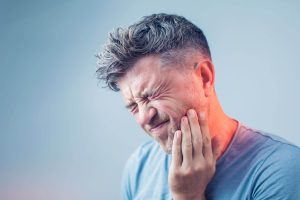
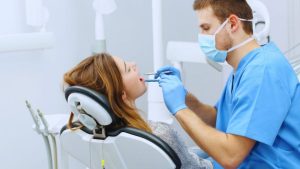
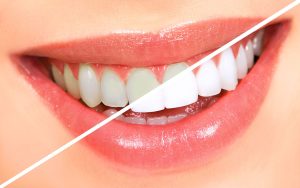
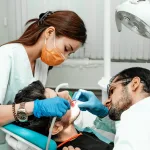
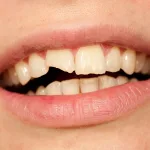
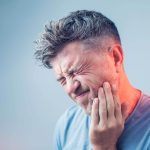
4 comments
Pingback:
Need a Reliable Dentist in Bardon? Here’s What to Look ForPingback:
Emergency Dentist Milton: Costs, Hours and What’s CoveredPingback:
Chipped Tooth vs Cracked Tooth: What’s the Difference?Pingback:
Tooth Fractures Brisbane: Common Types & How They’re Fixed